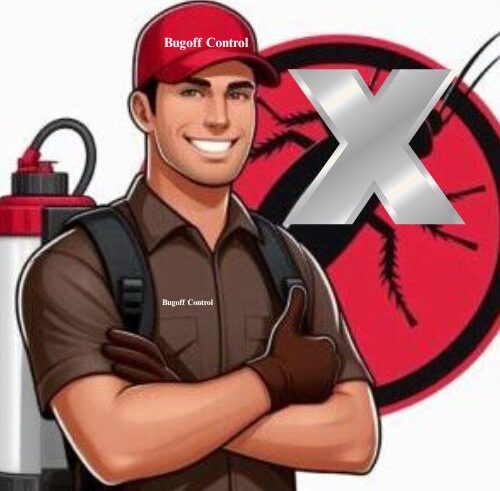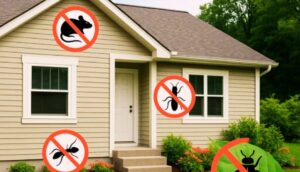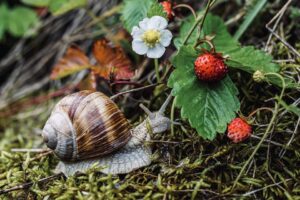Benefits of Insecticidal Soap

Many common garden insect pests can turn a dream garden into a nightmare, if left untreated these insects will multiply. An infestation that is out of control will make it more challenging to bring control. The good news is there are many pesticide brands once used correctly will bring good results. A popular insecticide that I have used on many garden projects which gives good results is insecticidal soap. This soap can be used on outdoor as well as indoor plants and is safe to use around kids and pets.
How to use insecticidal soap?
How do insecticidal soaps work?
Insecticidal soaps work by penetrating the outer skin of the insects which is known as the cuticle. When this happens the insect’s skin dries out causing dehydration.
These soap sprays work also by suffocating insect pests.
Listed insects pest
Insecticidal soaps can eliminate garden insect pests such as

- Immature leafhoppers
- Thrips
- Aphids
- Immature whiteflies
- Scales
- Whiteflies
- Spider mites
- Eggs and pupae of other insects
How to apply insecticidal soaps?
When applying insecticidal soap adjust the nozzle so that the insecticide comes out misty, course drops will not give good results. When applying, spray in such a way as to get total coverage of the leaves both the top and undersides. Other factors to consider.
1. Plants should be in good health when applying these soap sprays. Ensure that plants are watered the day before using these insecticides.
2. Some plants such as azaleas, ferns, lantanas, succulents, etc… are sensitive to insecticidal soap so be careful when applying. Look for the plant listing on the label.
3. Always especially if it is a plant that you may not be familiar with apply spray to the lower leaves as a test and watch for 24 hours to ensure that application does not have a negative effect before spraying the entire plant.
4. To get the best results from these soap sprays, spray application should be carried out during the morning hours when it is cool which lessens the chance of plant burn ( outdoor garden)
Advantages of insecticidal soap
- Insecticidal soap is biodegradable meaning that it breaks down so no need to worry about cleanup ( only in the case of treating indoor plants and soap gets on a piece of furniture then cleanup may be needed).
- Insecticidal soaps are non-toxic to people, birds, and mammals.
- Insecticidal soaps can be used on non-food-bearing as well as food-bearing plants.
- Has no residual effect. Once soap dries beneficial insects are safe.
- This soap is safe for the environment.
- kills on contact giving a quick knockdown.
Insecticidal Soap Limitations

- Insecticidal soaps are less effective against hard-bodied insects.
- These soaps are contact sprays and can only eliminate insects as they come in contact.
- Some plants are sensitive to these sprays so read the label for listed plants.
- Once dried it does not affect targeted insect pests.
- Don’t apply if the temperature exceeds 90 degrees outdoors.
Homemade insecticidal soap
Many products that can be found in our kitchen cupboards and pantries can be used to make an effective insecticide that will eliminate insects.
Here is a homemade insecticide that has proven to give good results.
What you will need?
1. A 32 oz spray bottle.
2. A gallon of Pure water
3. Pure soap.
To make this potent soap spray mix 4-5 tablespoons of soap in the gallon of pure water, shake well and you are good to go
Word of caution: As a safety measure it is good to rinse plants with fresh water thoroughly 2-3 hours after applying homemade sprays.
Brands of insecticidal soaps
There are many brands of insecticidal soaps that are at your disposal to eliminate insect pests. Here a just a few.
- Safer Pyrethrin & Insecticidal Soap Concentrate, 1 gallon
- Safer Soap
- Insecticidal Soap Insect Killer
- Insect-killing soap
- Garden Safe Insecticidal Soap Insect Killer
- Safer Brand 5118 Insect Killing Soap
- Bonide 652 Ready-to-Use Insect Soap
- Espoma Organic Earth-Tone Insecticidal Soap
10 Frequently Asked Questions (FAQs)
1. What is insecticidal soap, and how does it work?
Insecticidal soap is a plant-safe pest control solution made from potassium salts of fatty acids. It works by breaking down the protective outer layer of soft-bodied insects like aphids, mites, and whiteflies. Once sprayed, it disrupts their cell membranes and causes them to dehydrate and die. It’s effective, fast-acting, and eco-friendly!
2. Is insecticidal soap safe for my plants?
Yes, when used correctly! Insecticidal soap is designed to be gentle on most plants. However, it’s always a good idea to test it on a small area of the plant first—especially with tender leaves—just to be sure there’s no reaction like browning or wilting.
3. What pests does insecticidal soap control?
Insecticidal soap works best on soft-bodied insects such as aphids, mealybugs, spider mites, whiteflies, thrips, and scale insects (when young). It’s not effective on hard-shelled bugs like beetles or flying pests like mosquitoes.
4. How do I apply insecticidal soap to my plants?
Spray it directly onto the insects, making sure to coat the tops and bottoms of leaves, stems, and buds. Coverage is key—it only works on contact, so bugs need to be hit with the spray to be affected. Morning or evening applications work best to avoid leaf burn.
5. How often should I use insecticidal soap?
You can apply it every 5 to 7 days during an infestation, or as needed. Just don’t overdo it—frequent spraying can stress your plants. Always follow the manufactures label for guidance on reapplication intervals.
6. Can I make my own insecticidal soap at home?
Yes, you can! A basic recipe is 1 tablespoon of mild liquid dish soap (like Castile soap) mixed with 1 quart of water. Just make sure the soap is free from degreasers, bleach, or synthetic additives that could harm your plants.
7. Will insecticidal soap harm bees, butterflies, or other beneficial insects?
In general, insecticidal soap is low-risk for beneficial insects—as long as you don’t spray them directly. It’s contact-only, so it won’t leave harmful residues. Still, try to avoid spraying during pollinator activity and focus on problem areas instead.
8. Can I use insecticidal soap indoors on houseplants?
Definitely! Insecticidal soap is a great choice for indoor plants, especially for treating spider mites, fungus gnats, and aphids. Just spray in a well-ventilated room and protect furniture or floors with newspaper or towels.
9. Does insecticidal soap kill insect eggs or larvae?
No, it only kills insects on contact in their active life stages. It doesn’t affect eggs or those hiding in the soil or under leaves. That’s why repeated applications are often necessary to catch newly hatched pests.
10. Can I mix insecticidal soap with other treatments like neem oil or fertilizer?
It’s best to use them separately. Combining insecticidal soap with other sprays can sometimes cause leaf burn or reduce effectiveness. Wait a few days between treatments, and always read the labels before mixing any products.
Conclusion
Insecticidal soaps are a great choice, these soap sprays have been around for some time because of the results they bring, however, before application read and follow the manufacturer’s directions for the best results. You will be happy with the results as garden pest is brought under control. These sprays will control a host of insect pests making your job in the garden a lot easier so join the many that are taking advantage of these sprays that will stop insect pests in their tracks.









